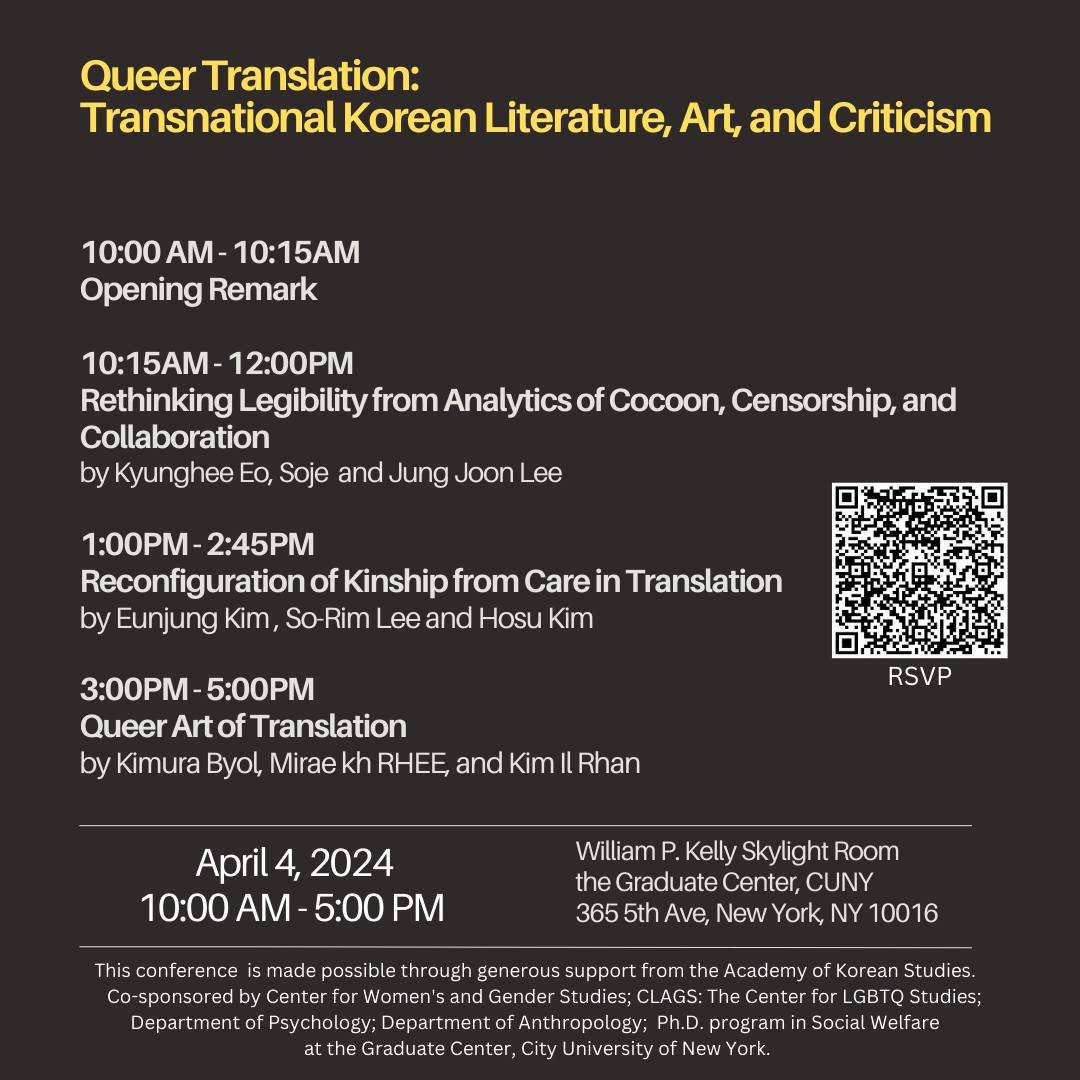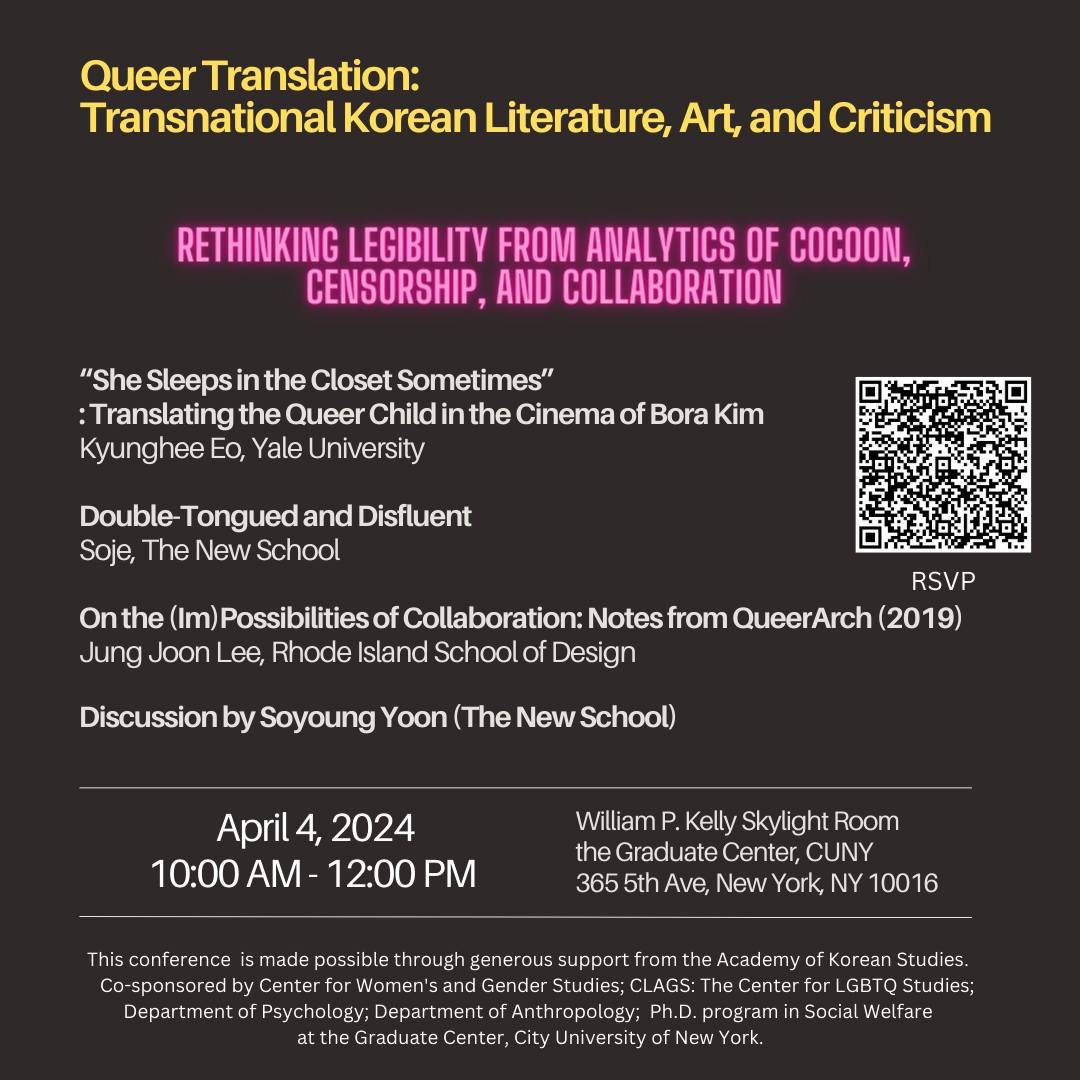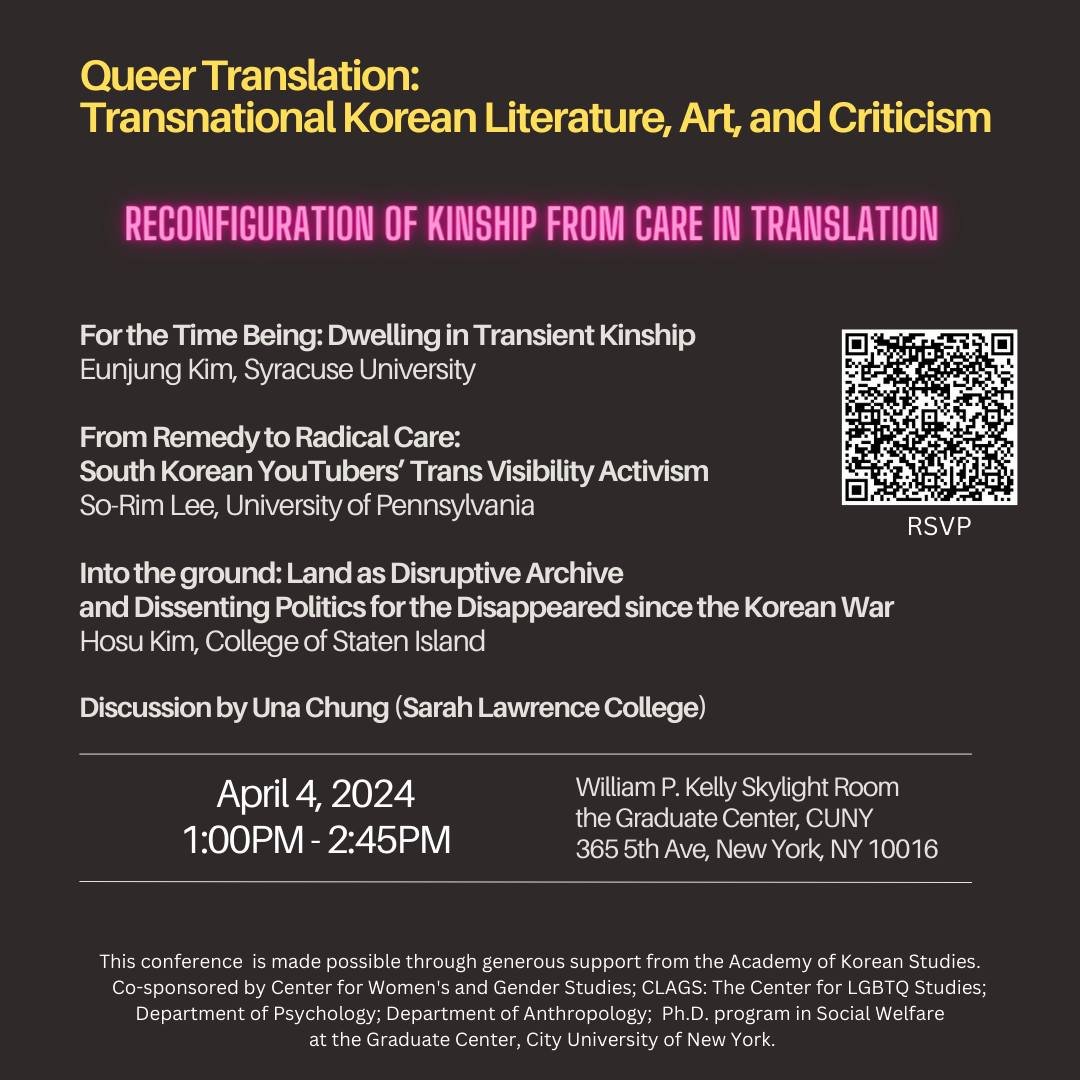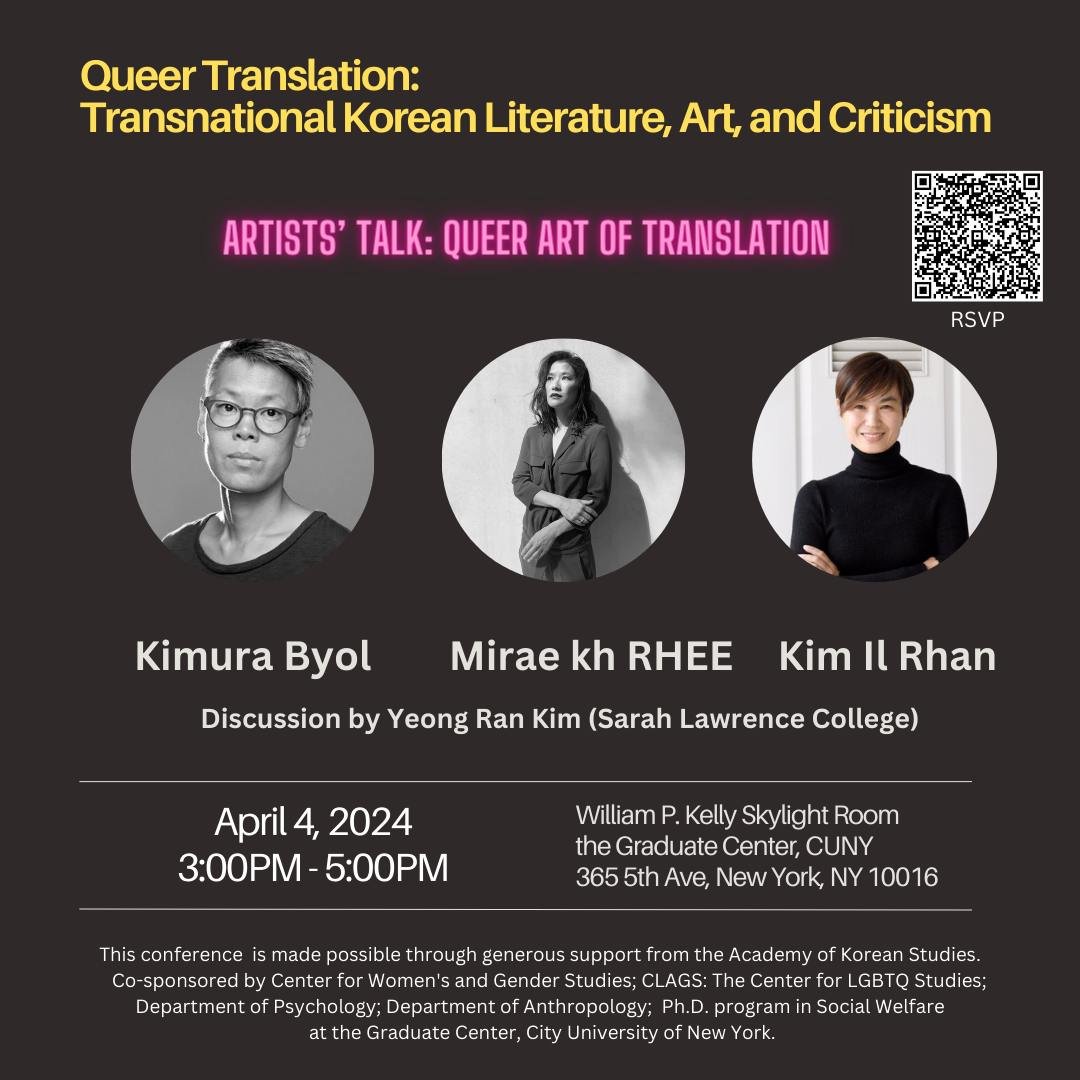time zone will be applied.
Report this post?




Queer Translation Conference will be held on April 4th, 2024 at CUNY, the Graduate Center (10-5 pm)
Queer Translation: Transnational Korean Literature, Art, and Criticism
This interdisciplinary conference, titled Queer Translation: Transnational Korean Literature, Art, and Criticism, features three panels to explore different modalities of translation—linguistic, affective, gestural, spectral—that are being utilized or invented within contemporary queer Korean studies. We highlight the distinctive contributions of Korean writers, artists, translators, and scholars to the common question of what it means to gain a global audience. This exploration aims to scrutinize their significance trans-contextually within global queer studies, migration studies, ethnic and diaspora studies, as well as literary and art criticism. For us the importance of translation derives not only from the conversion of one language to another but also the less visible task of rendering minoritarian perspectives and languages across diverse boundaries (i.e. gender, sexuality, class, race, disability).
Queer Translation seeks to investigate how the power of translation encounters, challenges, and negotiates frameworks of legibility within various institutional platforms both academic and artistic. In particular, we will reflect on our relationship to queerness and Koreanness, or our use of queer methodologies that implicate us within the field of translation broadly construed. How does the intersection of queer thought and translation appear in our work in ways that might reorient and reimagine established modes of inquiry? Why and how does a critical engagement in translation matter in our work as part of the ethics of decolonizing regimes of knowledge production in Korean studies?
The critical work of translation required “to bring or carry across” Korean cultural expressions into international discourse relies not only on hybridity (multiple languages and cultures) but also on queerness (non-normative subjectivities, transitivity of selfhood). Queer translation has the ability to hold even that which has been and may irremediably remain missing, to offer a place of divergence for advancing new modes of thought, practice, pedagogy, and community, which are oriented toward an as yet unanticipated—and, dare we say, better—future.